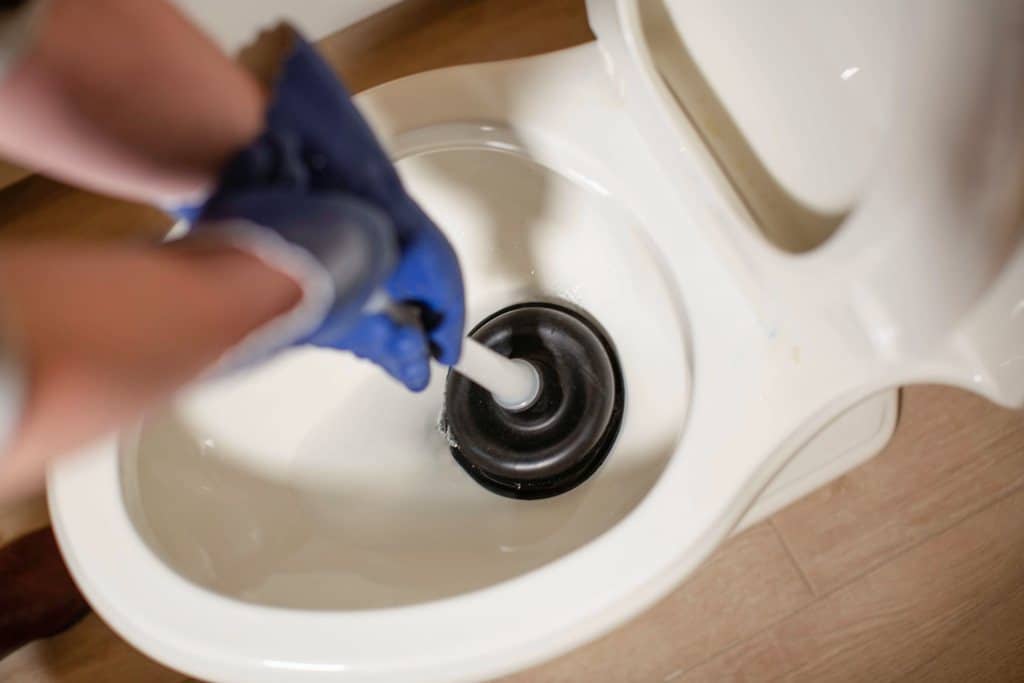5 Tips To Unclog Toilet DIY In Denver
A clogged toilet can be an unpleasant and inconvenient situation to deal with. Fortunately, many toilet clogs can be resolved without the need for a plumber’s assistance. With the right tools and techniques, you can unclog a toilet on your own and save both time and money. In this article, we will share five essential tips to help you unclog a toilet DIY style.
-
Use a Plunger
The plunger is a simple yet highly effective tool for unclogging toilets. To use it correctly, place the rubber cup of the plunger over the drain hole in the toilet bowl and create a tight seal. Push and pull the plunger vigorously in an up-and-down motion. The suction created by the plunger can dislodge the clog and allow water to flow freely again. Make sure there is enough water in the bowl to cover the rubber cup of the plunger for optimal results. If necessary, add water before plunging.
-
Hot Water and Dish Soap
Another effective DIY method for unclogging a toilet is using hot water and dish soap. Boil a pot of water and let it cool slightly, then add a generous amount of dish soap to it. Pour the hot soapy water directly into the toilet bowl from waist height. The heat and the soap can help break down the clog, making it easier to flush away. Allow the mixture to sit for a few minutes before attempting to flush again.
-
Use a Toilet Auger
If the plunger and hot water methods don’t work, a toilet auger (also known as a closet auger) can be your next tool of choice. Insert the auger’s snake-like end into the toilet bowl and turn the handle clockwise while applying gentle pressure. The auger’s cable should navigate through the pipes, helping to break apart and push the clog further down the drain. Once you feel that you’ve reached the obstruction, continue turning the handle to break it apart or hook onto it, then carefully pull it out. Be cautious not to scratch the porcelain while using the auger.
-
Baking Soda and Vinegar
This natural DIY method can help dissolve and break down toilet clogs. Start by pouring one cup of baking soda into the toilet bowl, followed by one cup of white vinegar. Allow the mixture to fizz and bubble for about 10-15 minutes. The chemical reaction between the baking soda and vinegar can loosen the clog. Afterward, flush the toilet to see if the clog has cleared. If not, you may need to repeat the process or try other methods.
-
Prevent Future Clogs
The best way to deal with toilet clogs is to prevent them from happening in the first place. Avoid flushing items that are not toilet paper or human waste, such as paper towels, feminine hygiene products, and excessive amounts of toilet paper. Additionally, consider using a toilet with a higher flush capacity if you frequently experience clogs. Regular maintenance, such as occasional plunging even when the toilet is not clogged, can also help prevent buildup in the pipes.
FAQs
What Should I Do If The Water Level In The Toilet Bowl Is High?
If the water level in the toilet bowl is rising dangerously high, it’s essential to prevent an overflow. Quickly remove the tank lid and locate the flapper valve. Pushing the flapper valve down will stop more water from entering the bowl. This should buy you some time to address the clog using one of the methods mentioned above.
Can I Use A Chemical Drain Cleaner To Unclog My Toilet?
It’s generally not recommended to use chemical drain cleaners in toilets. These harsh chemicals can damage the toilet’s porcelain and may not be effective at removing tough clogs. It’s safer to try the DIY methods mentioned in this article or contact a professional plumber.
When Should I Call A Plumber For A Toilet Clog?
If you’ve tried the DIY methods without success, or if you suspect a more serious plumbing issue, it’s time to call a plumber. Signs of a more significant problem include multiple clogs in a short period, gurgling sounds from other drains, or slow draining throughout your home.
Conclusion
In conclusion, dealing with a clogged toilet doesn’t always require the services of a plumber. With the right tools and techniques, you can often unclog a toilet yourself. Remember to use a plunger, hot water and dish soap, a toilet auger, or a baking soda and vinegar solution to tackle the clog effectively. Additionally, adopting good toilet habits and practicing preventive maintenance can help you avoid future clogs. If all else fails, don’t hesitate to seek professional help to prevent further damage or plumbing issues.
For more information related to plumbing services, contact Drain Pros Plumbing Denver at (720) 664-8988.

